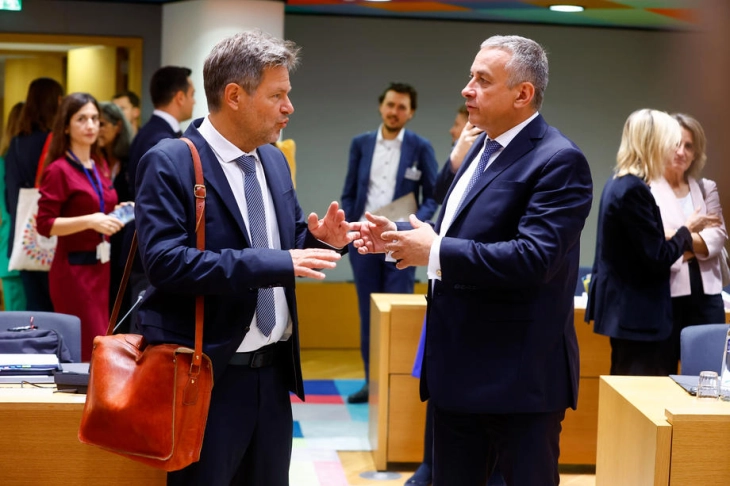EU energy ministers back energy measures amid economic concerns

Brussels, 9 September 2022 (dpa/MIA) - European Union ministers in charge of energy on Friday backed different approaches to tackle skyrocketing electricity prices that have left consumers and businesses struggling while concerns over the bloc’s economic outlook are growing.
The measures endorsed at a crisis meeting in Brussels on Friday include: skimming off excess revenues of electricity producers to make the money available to struggling households and businesses; incentivizing demand reduction; establishing a gas price cap; and supporting utility companies in financial difficulties.
“We need to make sure that we will not let down our citizens and businesses,” said Czech Industry Minister Jozef Sikela, who chaired the talks, at the end of the meeting.
“When [Russian President Vladimir] Putin started his energy war, he expected to divide us and damage our democratic societies and economies. He did [not] and will not succeed,” Sikela said.
Friday’s endorsement allows the European Commission to put forward a first draft law as early as next week, which will then be discussed and potentially amended by EU capitals before it can be approved.
Details of the sought solutions and how they should be implemented are not yet known as different EU countries still favour different solutions.
Sikela said he wants "clarity" by the end of the month on how exactly European Union countries want to tackle the crises.
The hurry to halt rising prices in time before the next winter comes as inflation hit 9.1% in the euro area in August, largely fueled by energy costs which are up 38.3% compared to last year, and a dim economic outlook.
“A recession is not inevitable but, honestly, the risk of one has evidently increased,” Economy Commissioner Paolo Gentiloni said at a meeting of EU finance ministers held simultaneously in Prague.
Gentolini said the euro area’s economy grew by 0.7 and 0.8% respectively in the first two quarters of 2022 despite adversities but the latest indicators would point towards a “slowing economic momentum."
Mounting energy and living costs have prompted EU capitals to put together various aid packages that amount to almost 1% of the Eurozone's gross domestic product (GDP), according to the EU Commission.
Eurogroup President Paschal Donohoe said in Prague that all measures to help struggeling consumers and businesses must be temporary and targeted to avoid “a wage-price spiral” where relief measures fuel inflation further.
German Finance Minister Christian Lindner speaking in Prague reiterated his call for budget discipline to fight rising prices.
"We have to deal with inflation and the mean of fiscal policy is sound public finances, reducing debts," he said.
"We have to support our private households, especially the most vulnerable, but sound public finances are more important than in the last decade," Lindner said.
Czech minister Sikela noted in Brussels that, once the commission has put forward its legislative proposal, he is ready to chair another round of emergency talks of EU energy ministers by the end of September in an attempt to contain the current situation.







